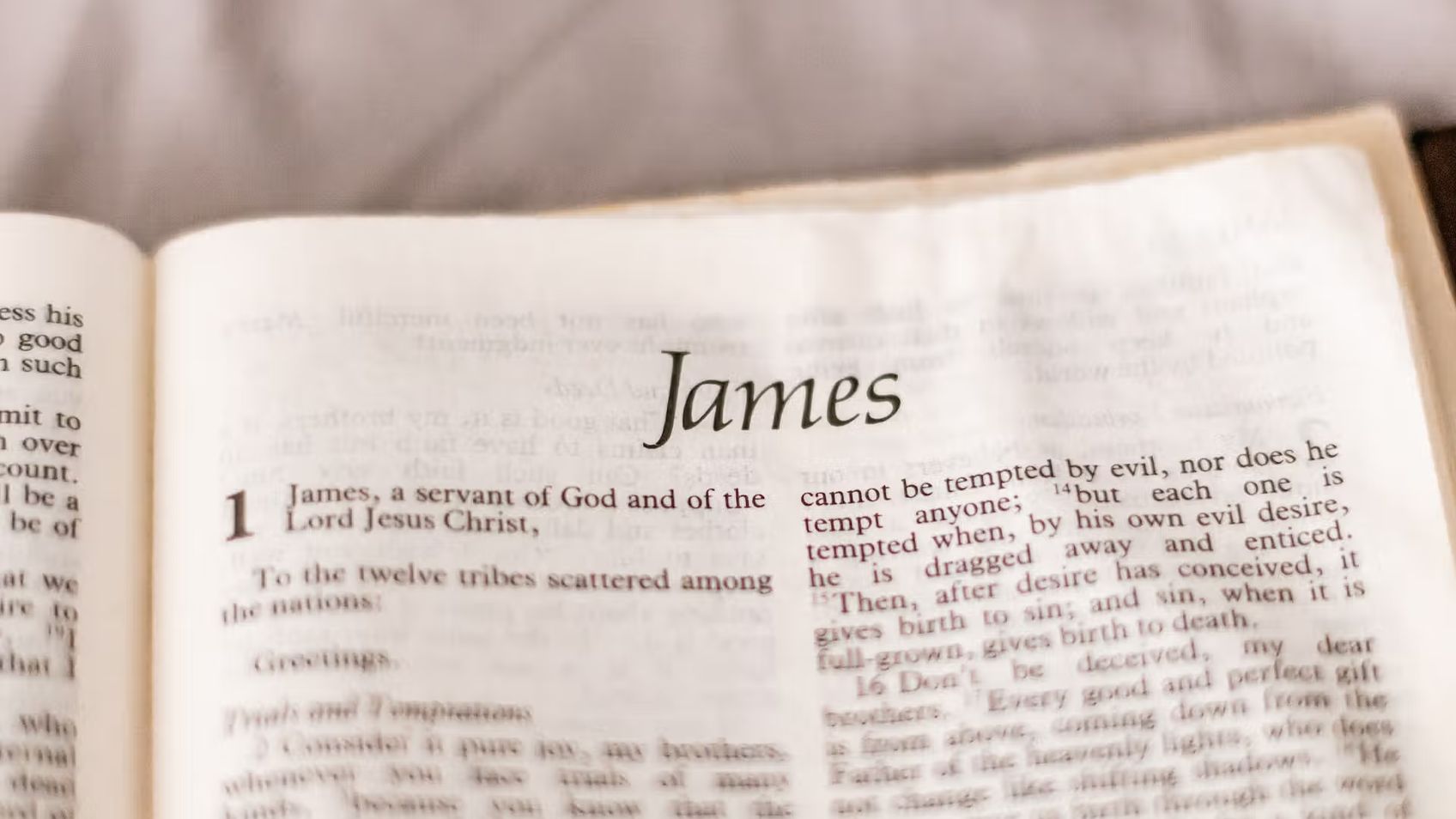James 4:5 - 5:20

JamesSteve Gregg
James warns against the dangers of loving the world and pursuing worldly objectives, as it is a form of spiritual adultery. He advises Christians to resist the temptations of the devil and draw near to God, reminding them that God resists the proud but gives grace to the humble. James also urges believers to be patient in afflictions and to call upon the elders of the church for prayer and healing, while confessing their faults and praying for one another.
More from James
4 of 5

James 3:13 - 4:4
James
James 3:13 - 4:4 is a passage warning against the damaging effects of speech, specifically addressing teachers and their power to do harm. True wisdom
Series by Steve Gregg

Isaiah
A thorough analysis of the book of Isaiah by Steve Gregg, covering various themes like prophecy, eschatology, and the servant songs, providing insight

2 Samuel
Steve Gregg provides a verse-by-verse analysis of the book of 2 Samuel, focusing on themes, characters, and events and their relevance to modern-day C

Revelation
In this 19-part series, Steve Gregg offers a verse-by-verse analysis of the book of Revelation, discussing topics such as heavenly worship, the renewa

Word of Faith
"Word of Faith" by Steve Gregg is a four-part series that provides a detailed analysis and thought-provoking critique of the Word Faith movement's tea

Gospel of Mark
Steve Gregg teaches verse by verse through the Gospel of Mark.
The Narrow Path is the radio and internet ministry of Steve Gregg, a servant Bible tea

Torah Observance
In this 4-part series titled "Torah Observance," Steve Gregg explores the significance and spiritual dimensions of adhering to Torah teachings within

Jude
Steve Gregg provides a comprehensive analysis of the biblical book of Jude, exploring its themes of faith, perseverance, and the use of apocryphal lit

2 Corinthians
This series by Steve Gregg is a verse-by-verse study through 2 Corinthians, covering various themes such as new creation, justification, comfort durin

Daniel
Steve Gregg discusses various parts of the book of Daniel, exploring themes of prophecy, historical accuracy, and the significance of certain events.

2 Kings
In this 12-part series, Steve Gregg provides a thorough verse-by-verse analysis of the biblical book 2 Kings, exploring themes of repentance, reform,
More on OpenTheo

The Heidelberg Catechism with R. Scott Clark
Life and Books and Everything
November 3, 2025
You may not think you need 1,000 pages on the Heidelberg Catechism, but you do! R. Scott Clark, professor at Westminster Seminary California, has writ

Why Is It Necessary to Believe Jesus Is God?
#STRask
February 19, 2026
Questions about why it’s necessary to believe Jesus is God, whether belief in the Trinity is required for salvation, and why one has to believe in the

Are Demon Possessions and Exorcisms in the New Testament Literal?
#STRask
December 11, 2025
Questions about whether references to demon possessions and exorcisms in the New Testament are literal, how to talk to young children about ghosts, an

Sense, Sensibility, and Adam Smith with Jan Van Vliet
Life and Books and Everything
February 16, 2026
This year is a special anniversary for the United States as Americans celebrate 250 years of independence. But 1776 was an important year in more ways

Conservatism and Religious Freedom with John Wilsey
Life and Books and Everything
October 27, 2025
What is conservatism? And why does it go hand in hand with religious freedom? How should we think about the American experiment of ordered liberty? Ha

What Is Wrong with Wokeness? With Neil Shenvi
Life and Books and Everything
January 19, 2026
In this timely interview, Kevin talks to Neil Shenvi about his new book (co-authored with Pat Sawyer), entitled “Post Woke: Asserting a Biblical Visio

How Do You Justify Calling Jesus the Messiah?
#STRask
December 18, 2025
Questions about how one can justify calling Jesus the Messiah when he didn’t fulfill the Hebrew messianic prophecies, and whether the reason for the v

Life and Ministry in Charlotte and in the SBC with Clint Pressley
Life and Books and Everything
December 15, 2025
In a rare cultural anomaly that may never be repeated in our lifetimes, the current SBC President and current PCA Moderator live in the same neighborh

Can You Provide Verifiable, Non-Religious Evidence That a Supernatural Jesus Existed?
#STRask
November 10, 2025
Question about providing verifiable, non-religious evidence that a supernatural Jesus existed.
* I am an atheist and militantly anti-god-belief. Ho

How Would You Convince Someone That Evil Exists?
#STRask
November 17, 2025
Questions about how to convince someone that evil exists, whether Charlie Kirk’s murder was part of God’s plan, whether that would mean the murderer d

Does God Hear the Prayers of Non-Believers?
#STRask
February 26, 2026
Questions about whether or not God hears and answers the prayers of non-believers, and thoughts about a church sign that reads (as if from God), “Just

What Do You Think About Churches Advertising on Social Media?
#STRask
January 19, 2026
Questions about whether there’s an issue with churches advertising on social media, whether it’s weird if we pray along with a YouTuber, and whether C

Lora Ries: Border Security and Immigration Policy
Knight & Rose Show
December 7, 2025
Wintery Knight and Desert Rose welcome Lora Ries to discuss border security and immigration policy. They explore Biden's policy changes, like ending R

E. Calvin Beisner: Climate and Energy Policy
Knight & Rose Show
January 4, 2026
Wintery Knight and Desert Rose welcome Dr. E. Calvin Beisner to discuss climate and energy policy. They explore Biblical dominion and stewardship, con

Does Open-Mindedness Require Studying Other Religions Before Becoming a Christian?
#STRask
February 9, 2026
Questions about the claim that if Christians really want to be open-minded, they need to read and study other religions before committing to Christian
